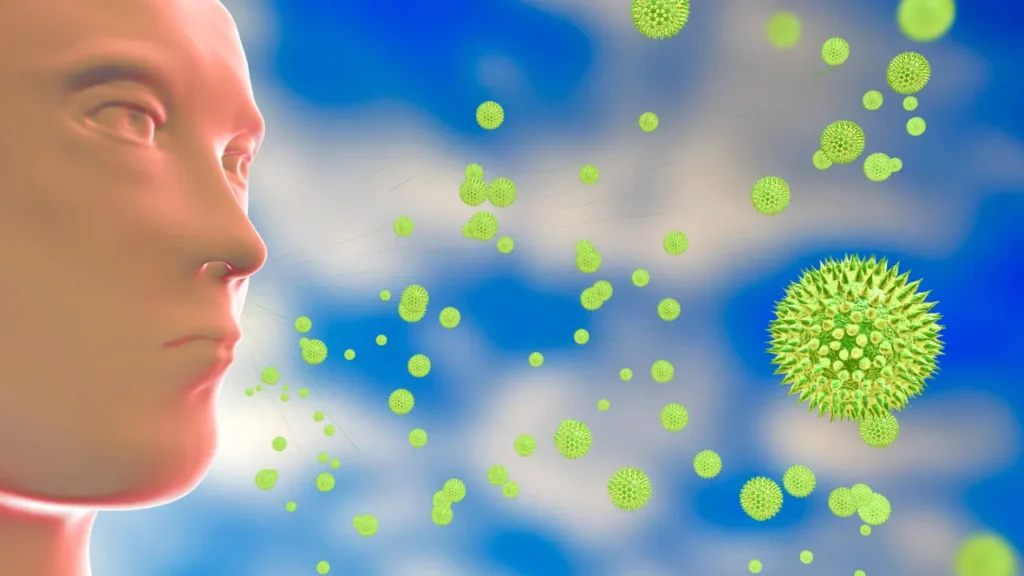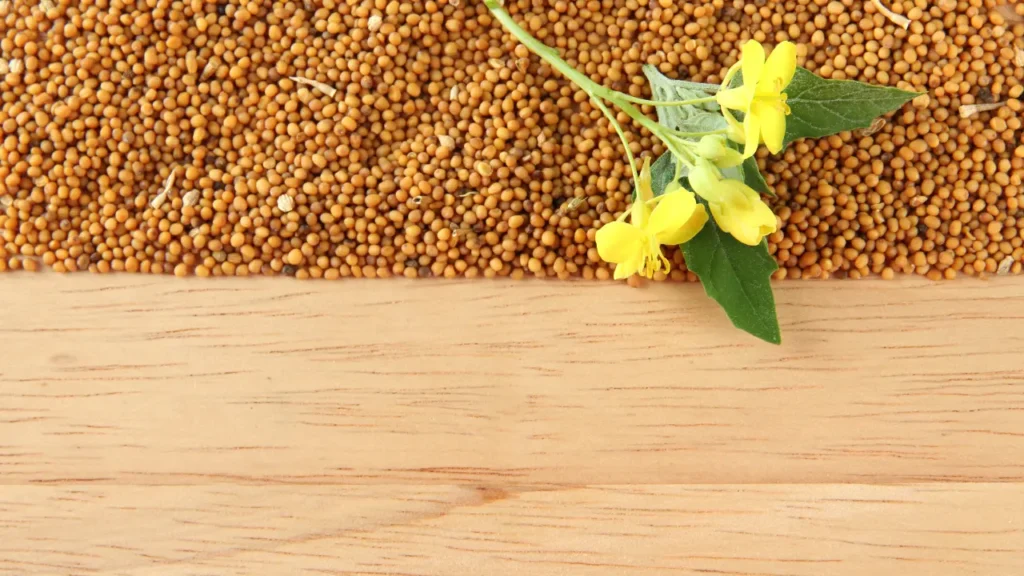The herbaceous plant known as white mustard (sinapis alba), a member of the brassicaceae family, is indigenous to the Mediterranean region, Western Asia, and Northern Africa. White Mustard is cultivated for its seeds, which are used to make mustard condiments and is also used as a spice. White Mustard has also been utilized for numerous medical and therapeutic uses. This article provides a thorough examination on white mustard’s chemical makeup, physiologicalproperties, potential health advantages, ideal dosage, side effects, and potential drug interactions. The goal of this article is to give readers a firm grasp of how to use this dietary supplement responsibly and safely.
You May Also Like:
Sunmed CBD vs. Partnered Process CBD: Finding the Best CBD for Sleep
Wild Yam: Benefits, Dosage, Side Effects, Drug Interactions, And Other Important Information
White Mustard (sinapis alba): Benefits, Dosage, Side Effects, Drug Interactions, And Other Important Information is an original (NootropicsPlanet) article.
Nature of White Mustard
The brassicaceae family of plants, which also includes well-known plants like broccoli, cabbage, and kale, includes the plant known as white mustard (sinapis alba). The plant is grown for its seeds, which are used as a spice and in the creation of mustard condiments. It is endemic to the Mediterranean region, Western Asia, and Northern Africa.
The plant has a branching, upright stem that can reach a height of up to 2-3 feet (60-90 cm), broad, lobed lower leaves, and small, clasping upper leaves. The seeds are tiny, spherical, and range in color from reddish-brown to yellowish-white, while the flowers are yellow and gathered in clusters. The seeds are contained in an extended, beaked pod.
Health Benefits
Although research on white mustard’s health benefits is still in its early stages, preliminary findings point to a number of potential therapeutic uses:
1. Anticancer Activity: In numerous in vitro and in vivo studies, isothiocyanates produced from white mustard glucosinolates have shown to have anticancer properties, which reduce cancer cell development and cause apoptosis in a variety of cancer cell types, including breast, lung, and colon cancer cells. Further research is necessary to completely understand the precise mechanisms underlying these anticancer benefits.
2. Cardiovascular Health: White mustard’s anti-inflammatory and antioxidant properties can help manage and prevent cardiovascular disorders. White mustard extract can lower blood pressure and enhance endothelial function, potentially lowering the risk of atherosclerosis and other cardiovascular diseases, according to research.
3. Respiratory Health: Asthma and chronic obstructive pulmonary disease (COPD) are two respiratory disorders that white mustard may be able to provide aid with due to the anti-inflammatory properties white mustard contains. To determine the effectiveness and safety of white mustard in treating certain disorders, more research is required.
4. Diabetes Management: White mustard can be useful in controlling diabetes, according to research. The plant’s extracts have demonstrated hypoglycemic properties that lower blood sugar and increase insulin sensitivity. These results need to be confirmed, however, and more research is still needed to understand the underlying potential properties in white mustard that can help with diabetes management.

Chemistry of White Mustard
White mustard has a complicated chemical makeup that varies based on the plant portion, the growth environment, and the extraction technique used. Glucosinolates, flavonoids, and phenolic compounds are a few of the main bio-active components of white mustard. These substances are assumed to be in charge of the plant’s healing abilities:
1. Glucosinolates: These are sulfur-containing glycosides that are present in a variety of brassicaceae plants. When glucosinolates are hydrolyzed, isothiocyanates are produced. These physiologically active substances have anti-inflammatory, antibacterial, and anticancer properties.
2. Flavonoids: Flavonoids are a class of polyphenolic substances that have anti-inflammatory, anti-oxidative, and anti-carcinogenic properties. White mustard contains the flavonoids quercetin, kaempferol, and isorhamnetin.
3. Phenolic Substances: The phenolic acids sinapic, ferulic, and caffeic found in white mustard have anti-inflammatory and antioxidant properties.
Physiological Properties of White Mustard
Although the physiological processes by which white mustard exerts its health benefits are not completely known, recent research points to a number of plausible pathways:
1. Antioxidant Activity: The flavonoids and phenolic components found in white mustard have antioxidant properties that help to squelch free radicals and lessen oxidative stress. This can prevent cellular deterioration and lower the risk of chronic conditions like cancer and cardiovascular disease, which are linked to oxidative stress.
2. Anti-inflammatory Effects: White mustard glucosinolates, a key transcription factor implicated in the inflammatory response, contain isothiocyanates that can influence the generation of pro-inflammatory cytokines and prevent the activation of nuclear factor-kappa B (NF-B), a key mediator of the inflammatory response. Asthma and arthritis are two inflammatory disorders that can benefit from this.
3. Isothiocyanates: These have been found to have antibacterial properties, which prevent the growth of a variety of bacteria, fungi, and viruses. This could explain why white mustard has historically been used as a treatment for infections and wound healing.

Optimal Dosage
There currently is no standard recommended dosage for using white mustard as a nutritional supplement because there hasn’t been much research done on it. The dosage can change according to the desired therapeutic result, the particular formulation, and your personal characteristics like your age, weight, and overall health state. Before beginning any supplements, it is essential to speak with your healthcare professional first because they can offer tailored suggestions based on your unique needs and circumstances.
Side Effects and Precautions
When used properly, white mustard is generally regarded as safe, however some people can develop negative responses or side effects. GI problems, allergic responses, and skin irritation are all possible side effects, particularly when used topically. White mustard supplements shouldn’t be taken by those who are pregnant, nursing, or have any pre-existing medical issues, as its safety in these groups has not been thoroughly studied.

Potential Substance Interactions
As with any dietary supplement, white mustard might have interactions with different drugs or other substances. The following are some possible interactions to be mindful of:
1. Anticoagulant and Anti-platelet Medications: White Mustard’s antioxidant and anti-inflammatory properties can enhance the effects of anticoagulant and anti-platelet drugs, which can raise the risk of bleeding. Before consuming white mustard supplements, if you are taking certain medications, be sure to use caution and talk to yourdoctor.
2. Immunosuppressant Medications: White mustard’s immunomodulatory properties can interfere with the effects of immunosuppressant treatments, which can lower their efficacy. Before using supplements containing white mustard, patients receiving immunosuppressive therapy should speak with their doctor.
Best Responsible Use of White Mustard
Consider the following recommendations to ensure the best ethical usage of white mustard as a dietary supplement:
1. Speak with a Healthcare Practitioner: It’s important to get guidance from a licensed healthcare provider before beginning any kind of supplementation. Based on specific needs, medical history, and potential conflicts with other drugs or dietary supplements, they can offer tailored suggestions meant just for you.
2. Pick an Authoritative Source: Choose a premium white mustard supplement from a reliable supplier to make sure the item is secure, pure, and has the contents listed. To aid in making your choice, look for third-party certifications and reviews.
3. Begin with a Modest Dosage: Start with a small dose and gradually raise it as needed, all while following a healthcare professional’s instructions. This method makes it possible to observe how each person responds to the supplement while reducing the possibility of negative effects.
4. Take the Medication as Directed: Take the medication as directed by the manufacturer or medical expert. Excessive intake may have negative effects or interact with other medications.
5. Keep an Eye Out for Side effects: While taking white mustard supplements, keep an eye out for any side effects or unfavorable responses. Stop using it immediately and seek medical advice if any problems occur.
6. Periodic Re-evaluation: Consult your medical expert on a regular basis to re-evaluate whether you still need to take supplements, taking into account any changes to your health, your use of medications, or any new scientific research.
7. Follow all Rules: Individuals can ensure the optimal ethical use of white mustard as a dietary supplement by adhering to the aforementioned rules, which can enhance its potential health advantages while lowering its potential hazards.
White Mustard:
Conclusion
Since ancient times, white mustard has been used for a variety of therapeutic and medicinal purposes, and several traditional medical organizations have made use of its seeds, leaves, and flowers. The complex chemical makeup of white mustard, as well as its possible health advantages and physiological properties, have all been the subject of recent research, which has increased interest in its usage as a dietary supplement.

References:
- Anticancer effects of isothiocyanates derived from White Mustard seeds. Retrieved from: https://www.ncbi.nlm.nih.gov/pmc/articles/PMC3492709/
- Hypoglycemic activity of White Mustard extract in animal models. Retrieved from: https://onlinelibrary.wiley.com/doi/abs/10.1002/ptr.2079
Important Note: The information contained in this article is for general informational purposes only, and should not be construed as health or medical advice, nor is it intended to diagnose, prevent, treat, or cure any disease or health condition. Before embarking on any diet, fitness regimen, or program of nutritional supplementation, it is advisable to consult your healthcare professional in order to determine its safety and probable efficacy in terms of your individual state of health.
Regarding Nutritional Supplements Or Other Non-Prescription Health Products: If any nutritional supplements or other non-prescription health products are mentioned in the foregoing article, any claims or statements made about them have not been evaluated by the U.S. Food and Drug Administration, and such nutritional supplements or other health products are not intended to diagnose, treat, cure, or prevent any disease.


